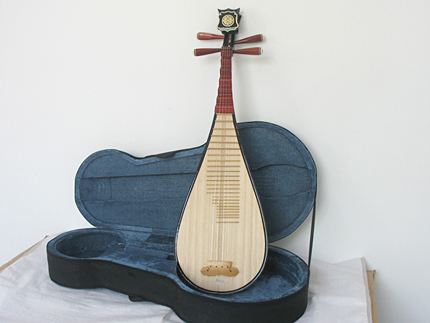The Difference Between Pipa Wenqu and Wuqu
The melody of Wenqu is generally more beautiful and moving, expressing natural scenery or the inner emotions of characters, etc. Wenqu tends to be lyrical, and the left-hand techniques such as kneading and pulling strings are mainly used in the performance process.

Wenqu's representative work
"Sai Shang Song" is a large set of traditional pipa texts. The music expresses sorrow and grief by describing Wang Zhaojun's longing for his motherland.
"Xunyang Xiao and Drum", also known as "Xunyang Song", "Sunset Xiao and Drum" is a lyrical and freehand literary piece. The melody is elegant and beautiful.
"Dance of the Yi Nationality" is an extremely lyrical piece of music with a strong atmosphere of life. It seems to use music to describe the landscape of the mountains. There are also (Zhaojun out of the fortress, Han Palace Qiuyueyueergao, Qinglian Yuefu, etc.)
The momentum of Wuqu is generally more magnificent, the tune is intense, and it can express a certain story or plot. Wuqu is more realistic, and more right-hand techniques such as sweeping are used in the performance process.
The representative work of Wuqu
"House of Flying Daggers" is a famous large-scale pipa piece, which can be called a classic among the pieces. The magnificence and splendor of the content of the music and the majestic and peculiar style are rare in classical music. The decisive battle of Gaixia was a famous battle in the history of our country. The pipa song "House of Flying Daggers" uses music to express the fierce battle of this ancient war, showing the world a vivid and moving picture of the ancient battlefield.
"The Overlord Removing Armor" is a well-known traditional pipa martial arts. This piece is based on the same material as "House of Flying Daggers", which also describes the battle of Gaixia. The protagonist is Xiang Yu, so the music is dull and tragic.
"Haiqing takes the swan", it is said that "Haiqing takes the swan" is the earliest pipa song known today.
Then there are Wenwu songs (white snow in the spring, high mountains and flowing water, dragon boats, etc.), sunset flute and drums (the predecessor of Chunjiang Huayueye), Xulai (this evening, long night chanting) and so on.
 渝公网安备 50010702504639号
渝公网安备 50010702504639号